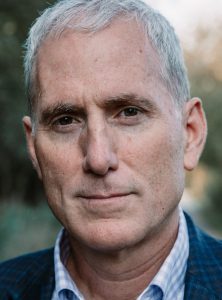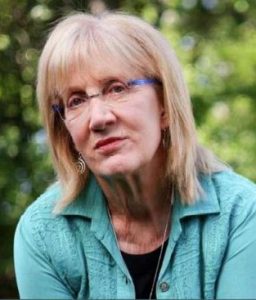Something fascinating is going on with Christa Brown’s memoir Baptistland.
I’ve been in book publishing for almost 30 years, a career that allowed me to see many sides of the publishing business. My last corporate role was as vice president and publisher of a major evangelical publisher owned by one of the “big five” publishers.

David Morris
My time in publishing has paralleled the big change in recent decades — the digital revolution. When e-books first came on the scene, there was much hand-wringing that this new format would become the dominant one for book consumption. Publishers would lose significant revenue, retailers would go completely out of business, and even perhaps books would stop being read.
But none of that came true, not completely. The publishing business has changed a lot, but it’s still profitable. We still have physical retailers, although their numbers and market share are greatly reduced. And believe it or not, people are still reading a ton of books every year.
What instead happened when our worlds of media and communication were restructured by instant delivery, streaming and searchable electronic devices wasn’t an e-book revolution, it was an e-distribution revolution.
Print books still outsell e-books.
Print is still king for most categories of books, but the way books are discovered and distributed is more reliant on our online universe than you can imagine. I’m now a publisher of an independent imprint, Lake Drive Books, working with entry-level authors, and I can tell you that more than 95% of their book sales are not through bookstores or libraries, but through the environment of online retail.
So what happened with e-books? They found success initially but leveled off, even declined. The percentage of e-books in genre-driven fiction, for example, might get as high as 50%. But for nonfiction, where most religious books are published, e-books make up around 13% of sales overall. What’s more, audiobooks that used to be perhaps 5% of sales have caught up to e-books.
So again, print is still king for key book categories. But that’s not true for Christa Brown’s Baptistland: A Memoir of Abuse, Betrayal, and Transformation.
Doing the math based on the above percentages, combined digital editions of nonfiction religious books should be no more than 25% of overall sales. But since Brown’s book went on sale May 7, combined digital editions total almost 54%, split almost evenly between e-book and audiobook.
We’re now more than two months since the initial recorded sales of the book, where perhaps print is the edition preferred by so many of Brown’s built-in audience. But as we continue promoting the book, as we drive awareness to those who don’t know the author, we’re finding something quite fascinating is happening.
“Print isn’t king here, it’s barely in the royal court.”
In the last four weeks of sales, combined digital editions add up to a whopping 81% of overall sales. That number, even if an aberration for this book, stunned this veteran publishing professional.
Print isn’t king here, it’s barely in the royal court.
So the question is, why?
Why would the e-book and audiobook editions combined outsell the print book for Christa Brown’s Baptistland?
Baptistland is a story of survival in the wake of the clergy sexual abuse that she experienced and that exists in the culture of Southern Baptists. Her narrative shows how abuse can go unchecked and arguably thrive in a culture and fraudulent theology of patriarchy. It’s a culture that draws an authoritarian line from pastors to men, from husbands to wives, and from siblings to siblings.

Christa Brown
When you read this book, you also learn how Brown not only survived but also found personal transformation as she left Baptistland and embraced a life as a successful appellate attorney, wife and mother. It’s an extraordinary story and a well-written book.
So can you guess as to why a book like this might be selling dramatically better as an e-book and audiobook than most books?
We can only speculate, but it’s a fair guess that people are reading and listening to Brown’s book discreetly. Sure, many might like the convenience and price of a digital edition, but many are choosing these formats because they want to take in the story without the prying eyes of their friends, other churchgoers, husbands or even their local pastor.
I love Baptistland because it tells a story, one I likely would have been discouraged from publishing when I worked at a major evangelical publisher.
The one thing so many of us have discovered as we leave the authoritarian religion that has revealed itself in recent times is that you can’t argue someone into a new position about faith. Our spiritual culture and institutions are about identity, and our allegiances are unconscious and less examined than we might think.
Yet stories, like Jesus’ parables, break through our seemingly linear thinking. They help us see a new narrative, if not new nuances about real life. Stories can speak to more openness and a tolerance for ambiguity than the fly trap of right belief and sound doctrine. Rich, engaging and authentic stories can change perceptions and reshape identities.
I’m so glad for Christa Brown’s courage in telling her story and allowing me to publish it. We need to listen to more stories, and especially now to stories of women like her.
David Morris is the author of Lost Faith and Wandering Souls: A Psychology of Disillusionment, Mourning, and the Return of Hope. He is the publisher of Lake Drive Books and a literary agent at Hyponymous Consulting, two ventures working together to specialize in authors and books that help people heal, grow and discover. David holds a Ph.D. in psychology and religion from Drew University. He lives with his wife in Grand Rapids, Mich. More at davidrmorris.me.
Related articles:
Church life is the perfect cover for abusers, Brown says in BNG webinar
‘It was futile … nothing will change’ | Opinion by Christa Brown


